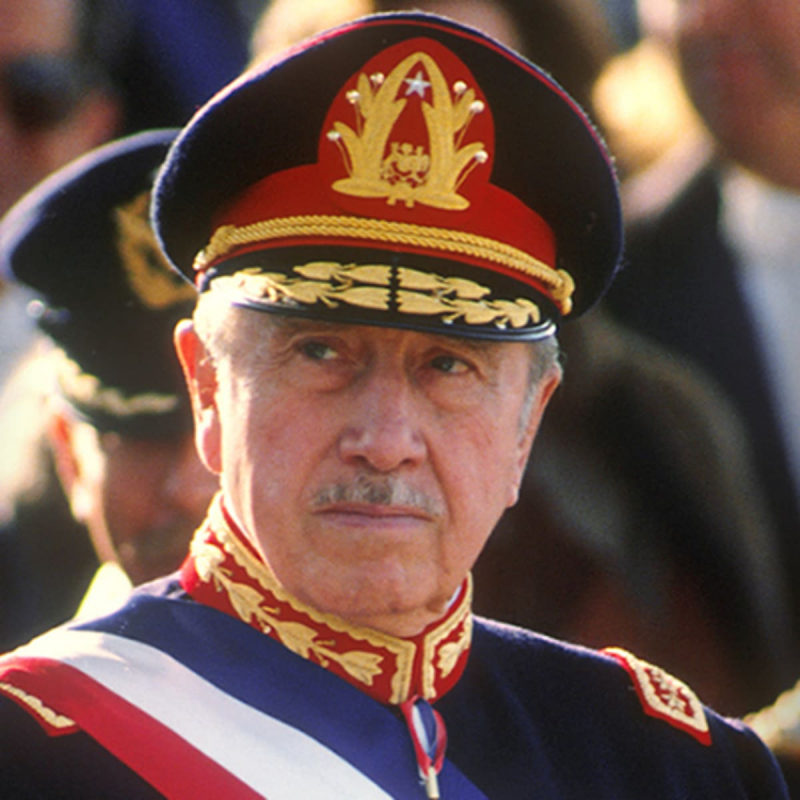Augusto Pinochet
For nearly twenty years, violent dictator General Augusto Pinochet Ugarte suppressed and transformed Chile. He is one of the most brutal dictators in modern history.
He ousted President Salvador Allende's Marxist administration in Chile in 1973 with the aid of a US-backed coup. He was a notorious representation of corruption and violation of human rights. Under his dictatorship, around 35000 persons suffered torture, and a great number more went missing. During the first four years of military administration, the foes of the Pinochet regime systematically implemented their disappearance plans. The majority of those who vanished were imprisoned in secret, subjected to torture, and ultimately they were never seen again.
After the Chileans rejected his bid for reelection in a plebiscite, Pinochet resigned as president in 1990. In order to replace the outdated constitution created during Arturo Alessandri's administration, Pinochet staged a poll to approve a new one. Additionally, it endorsed an election with just one candidate and an eight-year presidential term. Throughout Pinochet's rule, about a million people were compelled to leave the nation.
He was put on trial by the government for violating human rights in the early 2000s, but the court determined he was mentally unable to stand trial. He underwent surgery after having a heart attack, and at the age of 91, he passed away.
Born: November 25, 1915
Died: Decemver 10, 2006
Country: Chile











